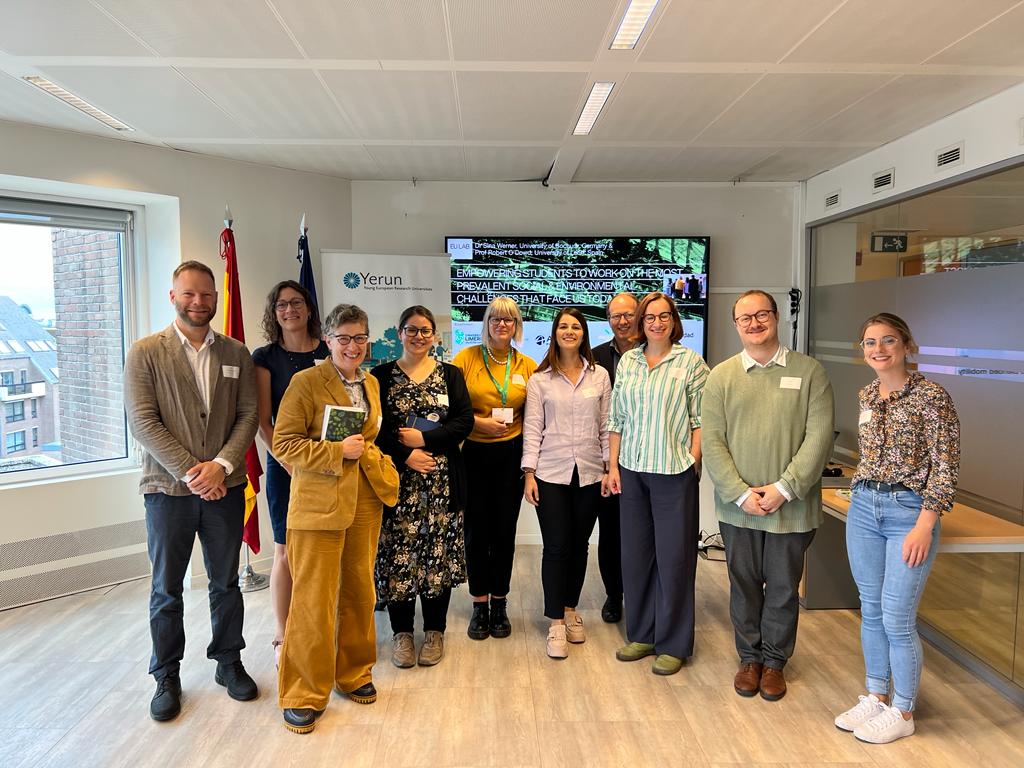The final multiplier event of the EULab project “Blended Mobility, Innovative pedagogies and the Green Transition” took place on 21 September from 09:30 to 12:30 CEST in Brussels at the YERUN premises.
YERUN member the University of Limerick leads the forward-looking EULAB project, which also includes partner universities Universidad de León (Spain), University of Oulu (Finland) and Audencia Business School (France).
The event provided a unique opportunity to discuss the role of Blended Mobility and Innovative Pedagogies in Education for Sustainable Competence Development. Indeed, EULab is a great example of how these three imperatives of today’s education can complement each other. In particular, participants appreciated the challenge-based approach fostered by the project, thanks to which learners work on real scenarios (such as embedding a circular economy model in Limerick, or fostering food sustainability in Nantes).
YERUN contributed to the discussions with its perspective on Education for sustainability, a topic in which its ad hoc group on SDGs worked extensively over the past years and which led to the publication “Education for a more sustainable world” – in which EULab is showcased as a good practice.
The first presentation was by Sina Werner, PhD student from the University of Bochum, who provided an overview on Blended Mobility, Virtual Exchange and Virtual Mobility and on how these approaches work in practice in European higher education institutions.
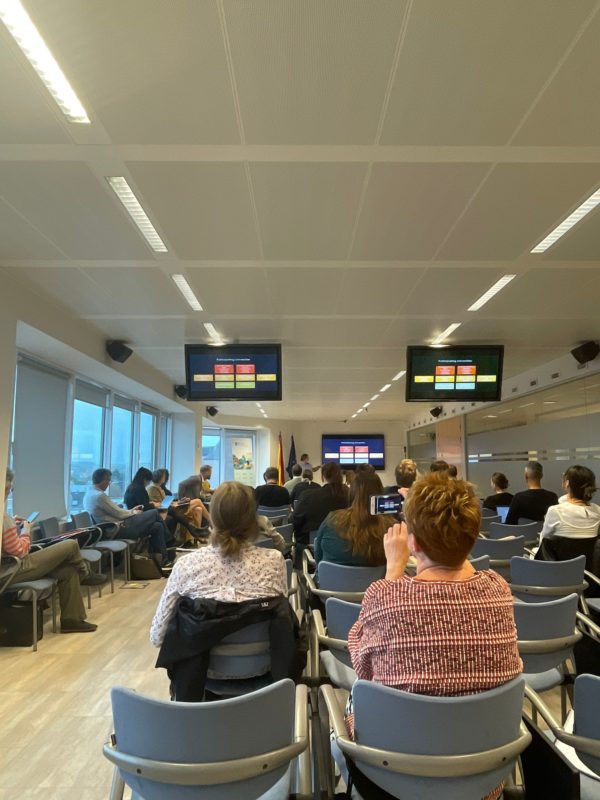
Following, Julie Anderson, Policy Officer at The European Commission’s Directorate General for Education and Culture, gave the Commission’s perspective on twin transitions and education for Sustainable Competence Development.
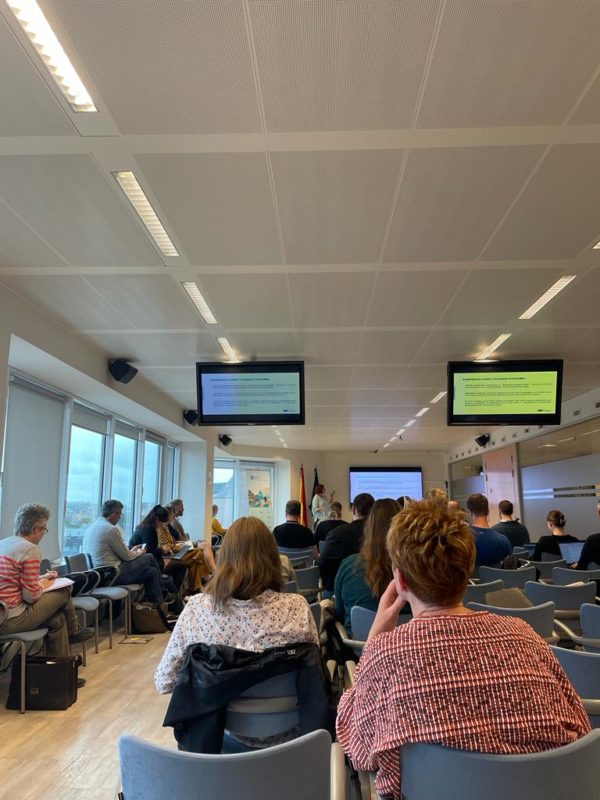
Prof. Jennifer Goodman, from Audencia Business School, and Prof. Jan Hermes, from Oulu University Business School, presented the EULab Project as an example of innovative pedagogies.
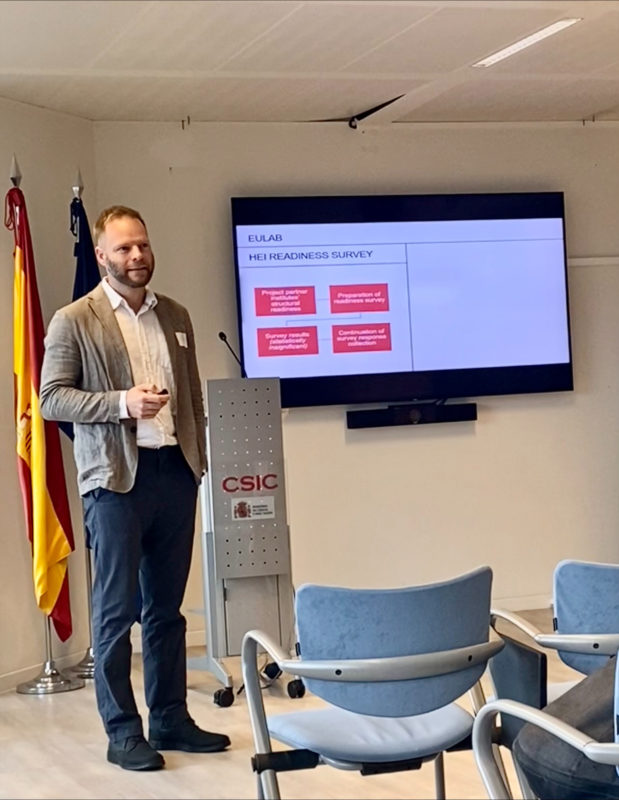
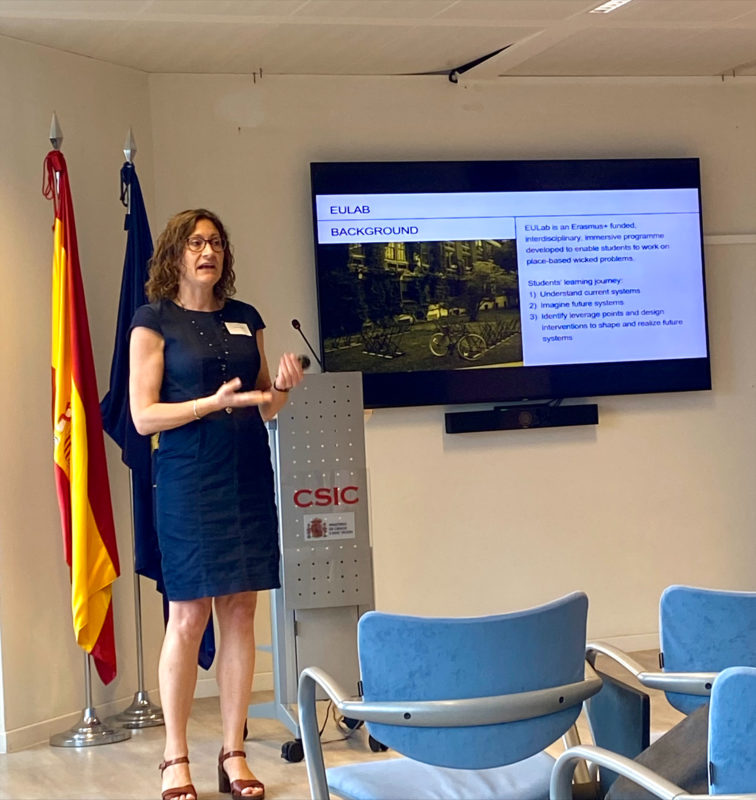
To conclude the event, Johannes Gehringer, Policy Officer at DG EAC, Chiara Colella, Policy Officer at YERUN, Wim Gabriels, Director of the Erasmus Student Network (ESN), Angeliki Psychogyiou, Policy and Project Coordinator at the Academic Cooperation Association (ACA), Dr. Annmarie Ryan, EULab Project lead convened in a roundtable moderated by Prof. Catherine Morel, from Audencia Business School, to answer three questions: What should be the role of Blended Mobility in higher education for sustainability? How can Blended Mobility contribute uniquely to sustainability competence development? What is the role of innovative pedagogies in this regard?
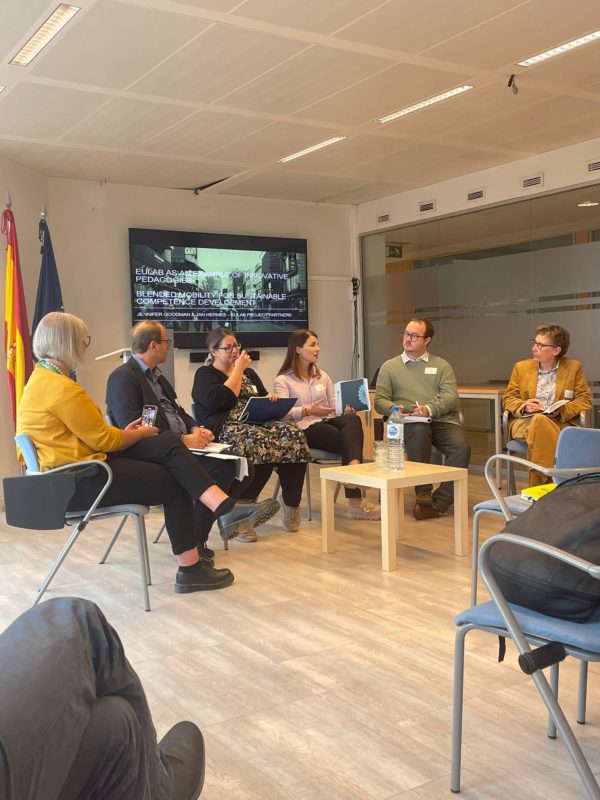
It was a pleasure for YERUN to host such an interesting event showing how blended mobility, innovative pedagogies and green transition can contribute in advancing sustainability and digitalisation skills.
.
Please find below all the presentations given at the event:
- Sina Werner: An Introduction to Blended Mobility and Blended Intensive Programmes
- Prof. Jan Hermes and Prof. Jennifer Goodman: EULAB as an Example of Innovative Pedagogies: Blended Mobility for Sustainable Competence Development
- Julie Anderson: Green and Digital Transition
.
About EULab:
EULab is an Erasmus+ co-funded project bringing together partners from University of Limerick (UL, Ireland)), Audencia Business School (France), University of Oulu Business School (Finland) and Universidad de León (Spain). EULab’s aim is to employ a blended mobility model to make impact on real challenges. EULab has enabled the partner universities to experiment and grow a novel education modality developed in UL, the Digital Futures Lab, toward the realisation of a European programme where student and faculty co-create challenge led, place based, studio learning to imagine and model sustainable futures. The programme aims to equip active citizenship toward regenerative futures using a heutagogical blended mobility model.

